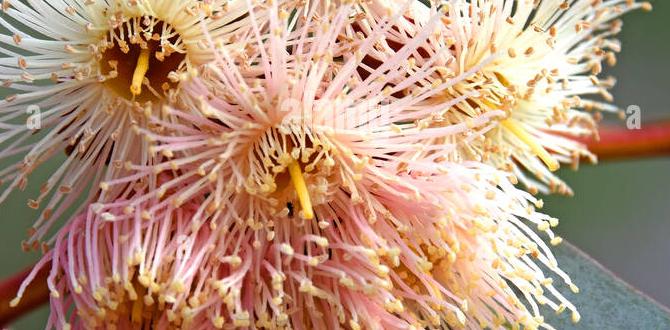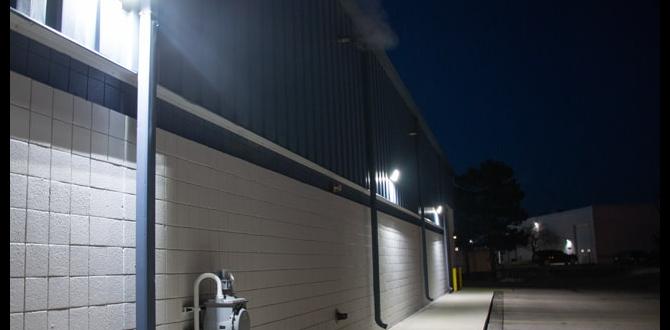Have you ever wondered how to grow your own food? Imagine walking into your backyard and picking fresh tomatoes, peppers, or herbs. Organic gardening for beginners offers you that chance!
Starting an organic garden can be fun and exciting. You don’t need a lot of space or fancy tools. All you need is some good soil, a little sunlight, and a bit of water. Did you know that organic gardening helps the planet, too? It reduces chemicals in our food and keeps the soil healthy.
Maybe you’ve tried to grow plants before, but they didn’t make it. Don’t worry! Every gardener has stories of plants that didn’t survive. The good news is that with these beginner tips, you can learn to grow strong, healthy plants from your very own garden.
So, are you ready to dig in? Let’s explore how organic gardening can turn your backyard into a growing paradise!
Organic Gardening For Beginners: A Simple Start Guide
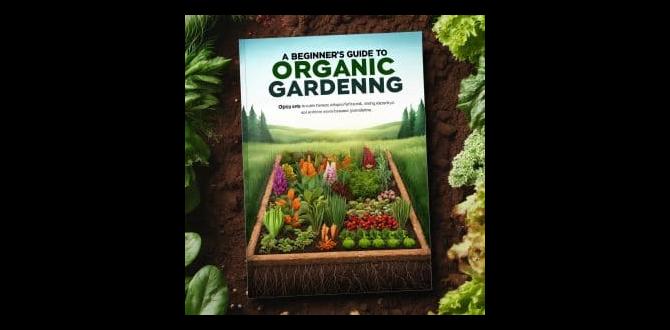
Organic Gardening for Beginners
Organic gardening is a fun way to grow healthy plants and vegetables without harmful chemicals. Start with easy-to-grow herbs, like basil or parsley. Use rich soil and plant them in sunny spots. Did you know? Worms in the soil help nourish your plants! Enjoy the fresh taste of homegrown produce while learning about nature. Plus, gardening is a great way to spend time outdoors. Ready to dig in and start your organic garden journey?Understanding Organic Gardening
Definition of organic gardening. Principles and benefits of organic practices.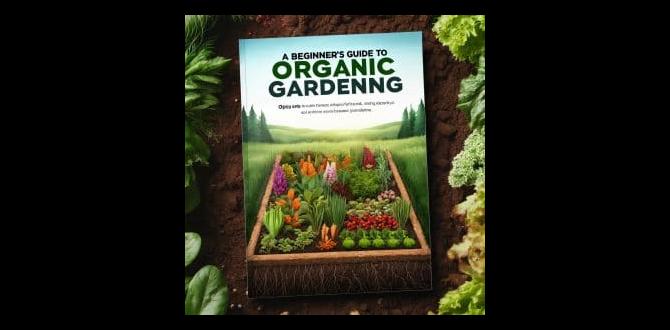
Imagine growing your food without using any yucky chemicals! That’s what organic gardening is all about. It means using natural methods to help plants grow healthy and strong. The key rules? No pesticides, artificial fertilizers, or genetically modified seeds. Instead, we use compost, healthy soil, and friendly bugs! The perks? You get fresh veggies and help the planet. And who can say no to a tomato that tastes like *real* tomato? Yum!
| Principles | Benefits |
|---|---|
| No chemicals | Healthier food |
| Use of compost | Better soil |
| Biodiversity | Eco-friendly |
Getting Started with Organic Gardening
Choosing the right location for your garden. Assessing soil health and composition.Start by picking a good spot for your garden. Look for a sunny area. Most plants need at least six hours of sunlight each day. Next, check your soil. Dig a small hole and see if it’s crumbly or sticky. Healthy soil is rich and dark. If it feels like mud, it may need compost or sand to improve. Knowing these details helps your plants grow strong!
What Makes a Good Garden Location?
A good garden location is sunny, well-drained, and protected from strong winds. Look for:
- At least six hours of sunlight
- Near water source
- Avoiding shadows from trees or buildings
How to Check Soil Health?
You can check soil health by feeling its texture and looking at its color. Healthy soil is:
- Dark and crumbly
- Smells earthy
- Full of tiny life like worms and bugs
Selecting Plants for Your Organic Garden
Best vegetables and herbs for beginners. Companion planting and its advantages.Picking the right plants for your organic garden can be a fun adventure! For beginners, vegetables like tomatoes, carrots, and lettuce are great choices. They are easy to grow and tasty too! Adding herbs like basil and mint can spice things up, almost like a magic wand for your dishes. Plus, consider companion planting. When you pair plants like tomatoes with basil, they help each other grow better—kind of like buddies in a sandbox! So, let’s dig in and plant those greens!
| Best Vegetables | Best Herbs | Companion Pairing |
|---|---|---|
| Tomatoes | Basil | Tomatoes + Basil |
| Carrots | Mint | Carrots + Lettuce |
| Lettuce | Parsley | Lettuce + Radishes |
Soil Preparation and Fertilization
Techniques for building healthy soil. Organic fertilizers and when to use them.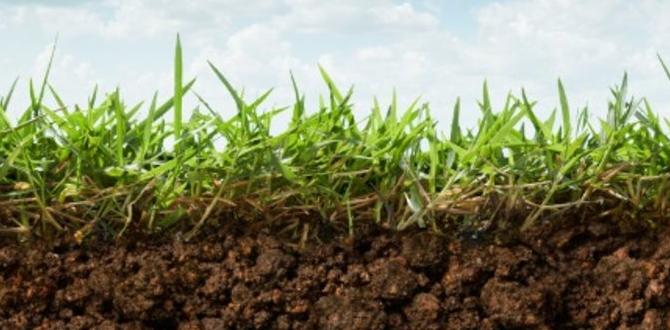
Healthy soil is a garden’s best friend. To build it up, start with compost and mulch. They add nutrients and help your soil hold water—kind of like giving it a cozy blanket! Organic fertilizers, like fish emulsion or bone meal, work wonders. Use fish emulsion every few weeks and bone meal in spring for best results. Here’s a handy table to guide you:
| Organic Fertilizer | Best Time to Use |
|---|---|
| Fish Emulsion | Every 4-6 weeks |
| Bone Meal | Early Spring |
| Compost | Throughout the year |
Remember, good soil is like a pizza—everyone loves it when it’s just right! So, love your dirt, and your garden will love you back!
Pest Management in Organic Gardens
Common pests and natural remedies. Integrated Pest Management (IPM) strategies.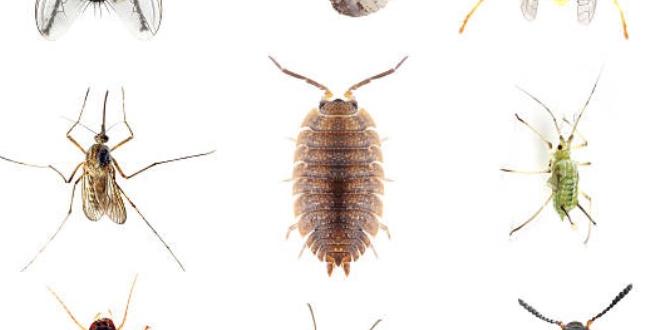
Pests can be the unwelcome guests at your gardening party. Common critters like aphids and spider mites love to munch on your plants. Thankfully, there are natural remedies. Spraying with soapy water can send them packing! You can also invite helpful bugs, like ladybugs, to the rescue.
Using Integrated Pest Management (IPM) is like having a superhero team for your garden. This approach combines different methods for a pest-free paradise. By monitoring pests, using traps, and applying natural sprays, you keep your garden healthy without the yucky chemicals. Remember, nature can be funny! Sometimes, your biggest garden enemy is a hungry snail. But don’t worry; they’re just trying to find their lunch!
| Pest | Natural Remedy |
|---|---|
| Aphids | Soapy water spray |
| Spider Mites | Neem oil |
| Slugs | Beer traps |
| Whiteflies | Yellow sticky traps |
Watering Techniques and Irrigation
Importance of proper watering practices. Effective irrigation systems for organic gardens.Watering plants is like giving them a drink after a long run; it’s essential! Proper watering practices help plants grow strong and healthy. Over-watering can drown them, while under-watering leaves them parched and sad. Effective irrigation systems, like drip hoses or soaker hoses, deliver water directly to the roots, just like a friendly gardener whispering sweet nothings. Remember, it’s all about balance! Here’s a quick look at some systems:
| System Type | Description | Best For |
|---|---|---|
| Drip Irrigation | Delivers water directly to the base of plants. | Fruits and veggies |
| Soaker Hoses | Releases water slowly along its length. | Flower beds |
| Sprinklers | Covers a large area with water spray. | Lawn care |
Using the right watering method keeps plants happy, making your gardening adventure a blooming success!
Seasonal Care and Maintenance
Seasonal tasks for organic gardeners. Tips for extending the growing season.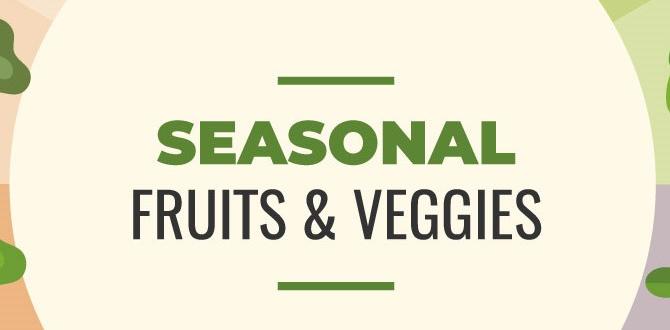
Organic gardening can feel like a fun puzzle each season! There are some simple tasks to keep your garden thriving. In spring, plant seeds and prepare your soil. Summer means watering and weed-watching. As fall approaches, harvest your veggies and get ready for winter. To keep your garden going longer, use row covers to protect from frost. Don’t forget to sip some tea while you garden; it makes the dirt much sweeter!
| Season | Tasks |
|---|---|
| Spring | Plant seeds and prepare soil |
| Summer | Water and control weeds |
| Fall | Harvest and prepare for winter |
Harvesting and Storing Your Organic Produce
How to properly harvest fruits and vegetables. Best practices for storing crops and prolonging freshness.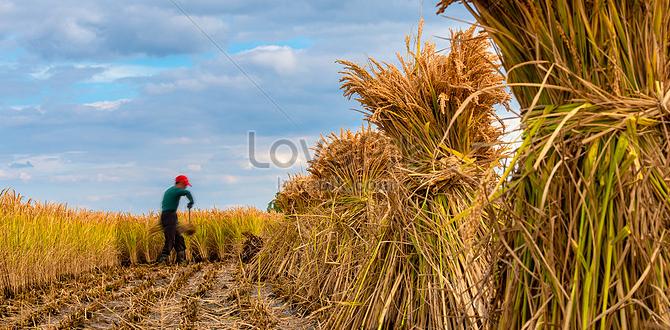
Gathering your fruits and veggies is the best part of gardening. When you see that shiny tomato or those crisp carrots, it feels like you hit the jackpot! To pick them, gently twist or cut at the stem. Avoid yanking them out. You don’t want to end up with a sad, squished vegetable.
Once you’ve harvested, it’s all about storage. Keep your produce fresh by placing them in a cool, dry spot. For leafy greens, a damp paper towel in the fridge works wonders! Here’s a handy table with some storage tips:
| Produce | Best Storage Method |
|---|---|
| Tomatoes | Room temperature |
| Carrots | Cool, damp place |
| Leafy greens | In the fridge with a damp towel |
Remember, fresher is tastier! But if you accidentally overdo it on zucchini, you can always give them to your friends. Sharing is caring, after all! With these tricks, your garden will keep giving, and your salads will be epic!
Common Challenges in Organic Gardening
Addressing common obstacles and solutions. Resources for further learning and troubleshooting.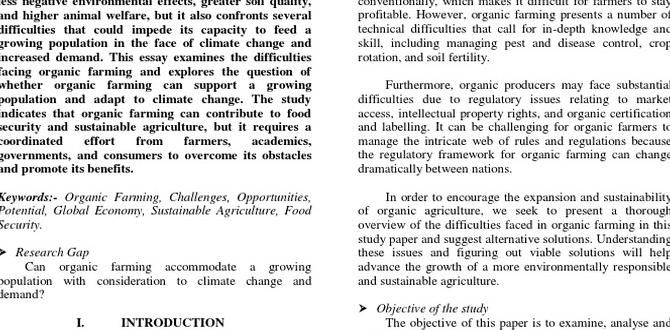
Many new gardeners face challenges in organic gardening. Pests, disease, and soil quality can cause problems. But don’t worry; these can be fixed with some simple solutions. Regularly checking plants and using natural remedies like neem oil can help with pests. Improve soil with compost and mulch. There are many resources available, such as books and online forums, where you can learn more:
- Local gardening clubs
- YouTube gardening channels
- Online blogs and websites
What is the best way to learn about gardening?
Visit your local library or garden center. Choose books on organic gardening. You can also join workshops or online classes for hands-on experience.
Conclusion
In conclusion, organic gardening for beginners is fun and rewarding. You can grow healthy plants without harmful chemicals. Start small, choose easy plants, and learn as you go. Remember to prepare your soil well and water regularly. For more tips, read books or visit local gardening workshops. Get started today, and enjoy the beauty of nature right in your backyard!FAQs
What Are The Essential Principles Of Organic Gardening That Beginners Should Know?To start organic gardening, you need good soil. Make sure it’s rich and full of nutrients. Use natural compost instead of chemicals. Choose plants that grow well together. Water your plants wisely and keep an eye out for pests. Enjoy watching your garden grow!
How Can I Start An Organic Garden In A Small Space, Like A Balcony Or Patio?To start an organic garden on your balcony or patio, pick a few easy plants. Herbs like basil or mint grow well in small pots. Get some good potting soil and fill your pots with it. Water your plants when the soil feels dry. Make sure they get plenty of sunlight each day!
What Are Some Effective Organic Pest Control Methods For Common Garden Pests?To keep pests away, you can use some natural methods. First, plant flowers like marigolds. They help scare off bad bugs. You can also mix soap and water in a spray bottle. Spray it on your plants to kill tiny pests. Lastly, attract good bugs, like ladybugs, which eat the bad ones.
How Do I Choose The Right Organic Soil And Fertilizers For My Plants?To choose the right organic soil, look for a brand that has natural ingredients like compost and peat moss. You want soil that feels rich and smells earthy. For fertilizers, pick ones that say “organic” and have natural nutrients. Check the package for balanced numbers, like 5-5-5, which means it has equal parts of the main nutrients. Try to match the fertilizer with what your plants need, like vegetables or flowers. Always follow the instructions for how much to use!
What Vegetables And Herbs Are Best Suited For Beginner Organic Gardeners?If you are a beginner organic gardener, try planting carrots, radishes, and lettuce. These vegetables grow quickly and are easy to care for. For herbs, basil, mint, and parsley are good choices. They can add flavor to food and are fun to grow. Just remember to water them and give them sunshine!
{“@context”:”https://schema.org”,”@type”: “FAQPage”,”mainEntity”:[{“@type”: “Question”,”name”: “What Are The Essential Principles Of Organic Gardening That Beginners Should Know? “,”acceptedAnswer”: {“@type”: “Answer”,”text”: “To start organic gardening, you need good soil. Make sure it’s rich and full of nutrients. Use natural compost instead of chemicals. Choose plants that grow well together. Water your plants wisely and keep an eye out for pests. Enjoy watching your garden grow!”}},{“@type”: “Question”,”name”: “How Can I Start An Organic Garden In A Small Space, Like A Balcony Or Patio? “,”acceptedAnswer”: {“@type”: “Answer”,”text”: “To start an organic garden on your balcony or patio, pick a few easy plants. Herbs like basil or mint grow well in small pots. Get some good potting soil and fill your pots with it. Water your plants when the soil feels dry. Make sure they get plenty of sunlight each day!”}},{“@type”: “Question”,”name”: “What Are Some Effective Organic Pest Control Methods For Common Garden Pests? “,”acceptedAnswer”: {“@type”: “Answer”,”text”: “To keep pests away, you can use some natural methods. First, plant flowers like marigolds. They help scare off bad bugs. You can also mix soap and water in a spray bottle. Spray it on your plants to kill tiny pests. Lastly, attract good bugs, like ladybugs, which eat the bad ones.”}},{“@type”: “Question”,”name”: “How Do I Choose The Right Organic Soil And Fertilizers For My Plants? “,”acceptedAnswer”: {“@type”: “Answer”,”text”: “To choose the right organic soil, look for a brand that has natural ingredients like compost and peat moss. You want soil that feels rich and smells earthy. For fertilizers, pick ones that say organic and have natural nutrients. Check the package for balanced numbers, like 5-5-5, which means it has equal parts of the main nutrients. Try to match the fertilizer with what your plants need, like vegetables or flowers. Always follow the instructions for how much to use!”}},{“@type”: “Question”,”name”: “What Vegetables And Herbs Are Best Suited For Beginner Organic Gardeners? “,”acceptedAnswer”: {“@type”: “Answer”,”text”: “If you are a beginner organic gardener, try planting carrots, radishes, and lettuce. These vegetables grow quickly and are easy to care for. For herbs, basil, mint, and parsley are good choices. They can add flavor to food and are fun to grow. Just remember to water them and give them sunshine!”}}]}



